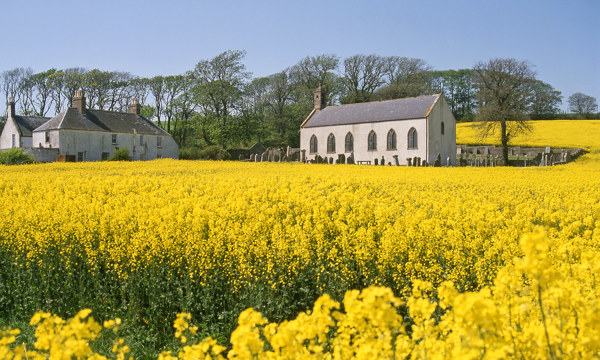1 How decisions are made
Due to high demand for our grant funding, we are not able to meet every grant request we receive. All grant applications are subject to a competitive assessment process which considers the merits of each application against set criteria and grant outcomes. Information about this process is provided on this page.
Expressions of interest
Since January 2020, HES has been operating an expressions of interest process for all grant programmes. The aim of this process is to provide feedback on grant proposals and eligibility at an early stage before applicants invest time and resources in developing a full application form. We aim to respond to expressions of interest within 10 working days. Our average response rate since starting this process is 6.9 working days.
For expressions of interest for the Heritage & Place Programme (H&PP), we will respond to these within the 6 weeks from the deadline date.
Assessment of applications
After each application deadline, grant applications are allocated to our team of Grants Managers for assessment. Applications across all grant programmes are considered against the following set of criteria:
- The significance of the heritage – formal designations are important here, but we also provide funding for intangible cultural heritage (such as traditional skills) and undesignated heritage assets if a strong case is made for their significance.
- How well proposals fit with wider strategies, other relevant activities and investment.
- Heritage at risk – we consider the scale and immediacy of any threats to the heritage and also take into account whether is currently, or could potentially be added to, the Buildings at Risk Register for Scotland.
- Grant outcomes (for current programmes) – applicants are asked to outline the impact that their proposals will make across our four grant outcomes:
- Outcome 1: Heritage and Society
The historic environment makes a real difference to people’s lives - Outcome 2: Heritage and the Environment
The historic environment is looked after, protected and managed for generations to come - Outcome 3: Heritage and the Economy
The historic environment makes a broader contribution to the economy of Scotland and its people - Outcome 4: Heritage and Creativity
The historic environment inspires a creative and vibrant Scotland
- Outcome 1: Heritage and Society
- Grants priorities (for new programmes) - applicants are asked to outline the impact that their proposals will make across our six grants priorities.
- Grants Priority 1: Increase Understanding of and Engagement with Scotland’s Historic Environment
- Grants Priority 2: Enhance Communities’ use of the Historic Environment In Place Making
- Grants Priority 3: Strengthen the Resilience of Scotland’s Historic Environment
- Grants Priority 4: Use the Historic Environment as a Catalyst for Climate Action
- Grants Priority 5: Increase the Quality and Availability of Historic Environment Skills
- Grants Priority 6: Increase Economic Benefits from the Historic Environment in a Sustainable and Inclusive Way
- Deliverability risk – a summary of risks posed to the successful management and delivery of a funding proposal.
- Sustainability – an assessment of the likelihood that the outcomes achieved by the project will be maintained during the control period of the grant.
- Value for money – this takes into account the overall benefits of the project in relation to the project costs and proposed grant intervention rate, along with the applicant’s financial need and ability to source funding from elsewhere.
When assessing applications against the above criteria, Grants Managers seek expert advice and input from colleagues in relevant directorates.
Before panel papers are finalised, they undergo a scoring and moderation process. Applications from each assessment round are compared to ensure consistency and then awarded a score of 0-5 for each assessment criterion. Overall scores are used to determine which applications are recommended for approval given the available budget.
The approvals process
There are different approval mechanisms depending on the value of the grant request as set out below. Grant requests above £100k are considered by a panel of Directors to inform the decision-making process.
- Grants up to £100k are approved by the Head of Grants.
- Grants above £100k and up to £250k are approved by the Director of External Relations & Partnerships.
- Grants above £250k and up to £500k are approved by the Director of Finance & Corporate Services.
- Grants above £500k and up to £1.5m are approved by the Chief Executive.
- Grants above £1.5m are approved by the HES Board.
Application success rates
We monitor our application success rates to ensure that the level of competition is fair and reasonable. The application success rate for last financial year (2021-22) was 51%.
Further information
If you would like further information about this process, please contact us at grants@hes.scot.
2 Culture and Heritage Infrastructure Scheme
On 1 January 2021, the UK left the EU and is no longer subject to EU laws on State Aid. The previous Culture and Heritage Infrastructure Scheme 2014-2020 will continue to apply to State Aid that was awarded by HES under this scheme up to and including 31 December 2021 and we will retain this information for future reference. To find out more about this scheme, please read our downloadable PDF below.
With the forthcoming introduction of the UK Subsidy Control Regime, any subsidies awarded by HES through our grant programmes from January 2021 are provided under the Historic Environment Scotland Culture and Heritage Infrastructure Scheme 2021-2025. To find out more about this scheme, please download the relevant document below.
Download Culture and Heritage Infrastructure Scheme 2021-2025 [PDF, 187KB]
(current scheme – applies to grants awarded from 1 January 2021)
Download Culture and Heritage Infrastructure Scheme 2014–2020 [PDF, 141KB]
(previous scheme – applies to grants awarded up to and including 31 December 2020)

